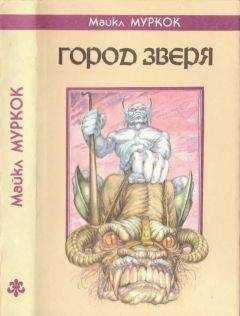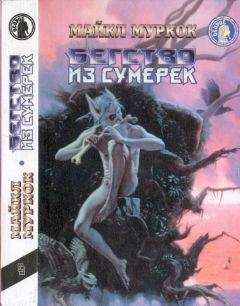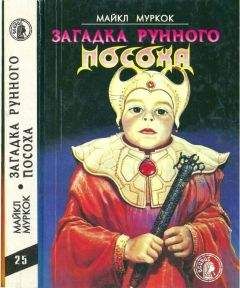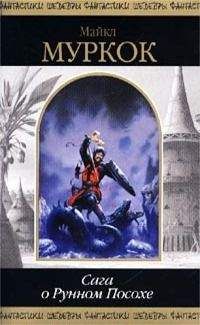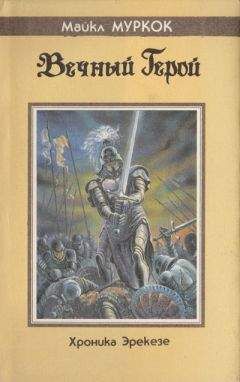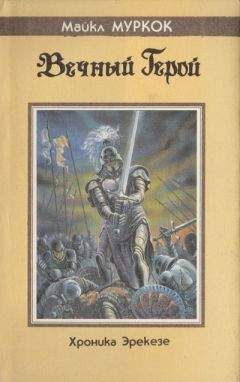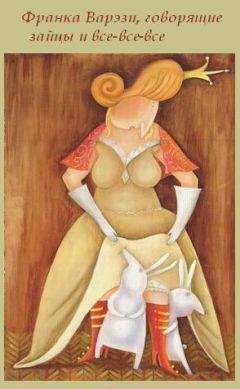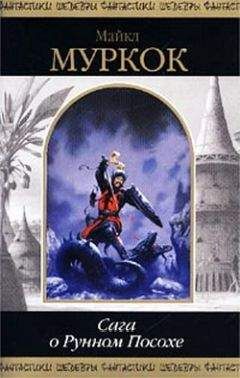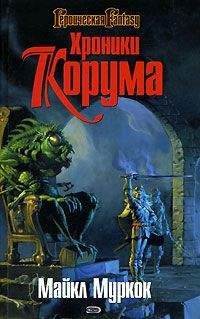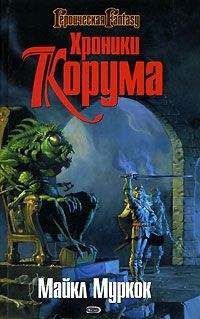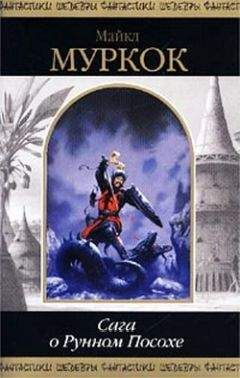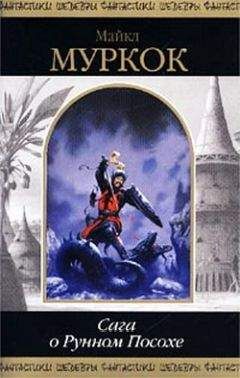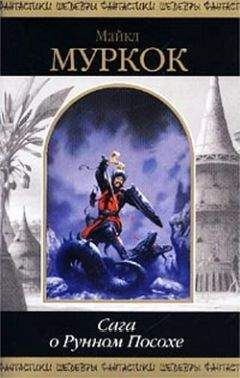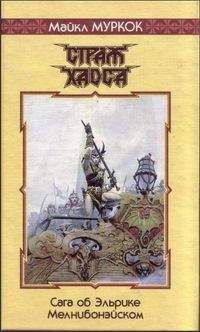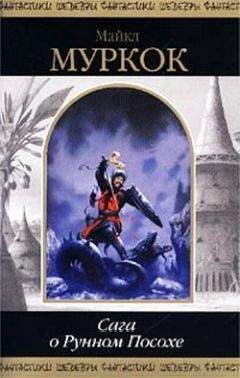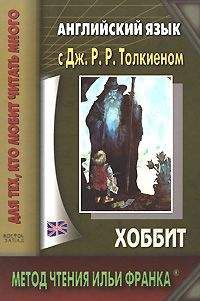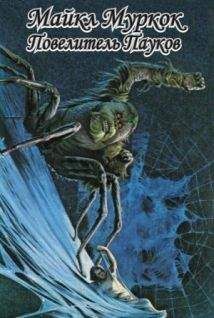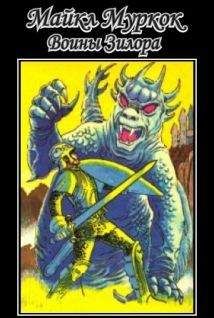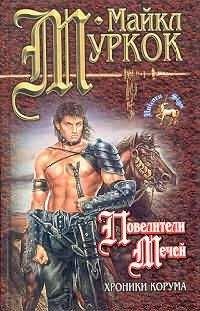Майкл Муркок - Английский язык с М. Муркоком
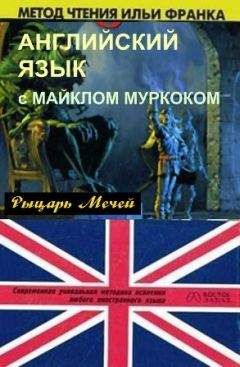
Скачивание начинается... Если скачивание не началось автоматически, пожалуйста нажмите на эту ссылку.
Жалоба
Напишите нам, и мы в срочном порядке примем меры.
Описание книги "Английский язык с М. Муркоком"
Описание и краткое содержание "Английский язык с М. Муркоком" читать бесплатно онлайн.
В книге предлагается произведение "Рыцарь Мечей" Майкла Муркока, адаптированные (без упрощения текста оригинала) по методу Ильи Франка. Уникальность метода заключается в том, что запоминание слов и выражений происходит за счет их повторяемости, без заучивания и необходимости использовать словарь. Пособие способствует эффективному освоению языка, может служить дополнением к учебной программе. Предназначено для студентов, для изучающих английский язык самостоятельно, а также для всех интересующихся английской культурой.
Метод чтения Ильи Франка
She looked up vaguely, nodding (она подняла глаза неясно = затуманенный взгляд, кивая).
`Well enough (довольно хорошо = вполне совпадает).
Corum began painfully to buckle on his armour (Корум принялся болезненно надевать доспехи; to buckle on — застегивать, пристегивать). Beldan helped him (Белдан помогал ему). They left for the battlements (они ушли на стену).
The Denledhyssi had regrouped on the shore (денледисси перегруппировались на берегу). The dead men and their ponies, as well as the corpse of the Brown Man of Laahr, had been washed away by the sea (мертвецов и их лошадей, а также труп мохнатого человека из Лаара, смыло морем; to wash away — смывать, сносить). A few corpses bobbed among the rocks below the castle (несколько трупов качалось /на волнах/ среди скал внизу замка; to bob — двигаться вверх или вниз с легкими толчками, подскакивать).
They had formed the same ranks as earlier (они построились в том же порядке, что и раньше; to form a rank — строиться в шеренгу). The mounted masked riders were massed some ten ranks deep with Glandyth behind them and the charioteers behind Glandyth (конные воины в масках встали примерно десятью рядами с Гландитом позади /себя/, а возничие = колесницы /расположились/ позади Гландита; to mass — собираться в кучу; сосредоточивать; deep — глубокий).
vaguely [ˈveɪɡlɪ] mounted [ˈmauntɪd] castle [kɑ:sl] charioteer [, ʧærɪəˈtɪə]
She looked up vaguely, nodding.
`Well enough.
Corum began painfully to buckle on his armour. Beldan helped him. They left for the battlements.
The Denledhyssi had regrouped on the shore. The dead men and their ponies, as well as the corpse of the Brown Man of Laahr, had been washed away by the sea. A few corpses bobbed among the rocks below the castle.
They had formed the same ranks as earlier. The mounted masked riders were massed some ten ranks deep with Glandyth behind them and the charioteers behind Glandyth.
Cauldrons of lead bubbled on fires built on the battlements (котлы со свинцом кипели на кострах, разложенных на стенах); small catapults had been erected, with piles of stone balls beside them, for ammunition (небольшие катапульты установили, кучи каменных ядер лежали возле них в качестве боеприпасов; to erect — соорудить; возвести; установить); extra arrows and javelins were heaped by the far wall (дополнительные стрелы и метательные копья сложили у дальней стены; to heap — бросать, складывать в кучу; нагромождать; накоплять).
Again the tide was retreating (снова течение отступало = начинался отлив).
The metallic drum began to beat again (металлический барабан начал бить снова). There was the distant jingle of harness (слышалось далекое звяканье упряжи). Glandyth was speaking to some of the horsemen (Гландит говорил с некоторыми всадниками).
`I think he will attack (думаю, он нападет), said Corum.
The sun was low and all the world seemed turned to a dark, chill grey (солнце было низко, и весь мир, казалось, стал темным, холодно-серым; to turn to — превратиться в). They watched as the causeway gradually became exposed until only a foot or two of water covered it (они наблюдали, как дамба постепенно обнажалась, до тех пор, пока = и вскоре лишь один-два фута воды покрывали ее).
catapult [ˈkætəpʌlt] ammunition [, æmjuˈnɪʃ (ə) n] javelin [ˈʤævlɪn]
Cauldrons of lead bubbled on fires built on the battlements; small catapults had been erected, with piles of stone balls beside them, for ammunition; extra arrows and javelins were heaped by the far wall.
Again the tide was retreating.
The metallic drum began to beat again. There was the distant jingle of harness. Glandyth was speaking to some of the horsemen.
`I think he will attack, said Corum.
The sun was low and all the world seemed turned to a dark, chill grey. They watched as the causeway gradually became exposed until only a foot or two of water covered it.
Then the beat of the drum became more rapid (бой барабана стал более быстрым). There was a howl from the riders (раздался вой всадников). They began to move forward and splash on to the causeway (они двинулись вперед, на дамбу, поднимая брызги; to splash — брызгать/ся/, плескать/ся/; шлепать /по воде, грязи и т. д. /).
The real battle for Moidel's Castle had begun (настоящая битва за замок Мойдел началась).
Not all the horsemen rode along the causeway (не все всадники поскакали по дамбе). About two-thirds of the force remained on the shore (около двух третей войска осталось на берегу). Corum guessed what this meant (Корум догадался, что это значит).
`Are all points of the castle guarded now, Beldan (все места замка охраняются, Белдан)?
`They are, Prince Corum (да, принц Корум).
`Good (хорошо). I think they'll try to swim their horses round and get a hold on the rocks so that they can attack from all sides (думаю, они попытаются переплыть на лошадях вокруг = обойти замок и взобраться по скалам, чтобы атаковать со всех сторон; to hold on — держаться за; прикреплять). When darkness falls, have flare arrows shot regularly at all quarters (когда наступит темнота, прикажи стрелять горящими стрелами постоянно со всех сторон; to fall — падать; спускаться, наступать /о темноте, ночи и т. д. /; flare — сверкание, вспышка или язык пламени; сигнальная вспышка; regularly — регулярно, постоянно, через равные промежутки).
rapid [ˈræpɪd] guessed [ɡest] flare [fleə] quarters [ˈkwɔ:təz]
Then the beat of the drum became more rapid. There was a howl from the riders. They began to move forward and splash on to the causeway.
The real battle for Moidel's Castle had begun.
Not all the horsemen rode along the causeway. About two-thirds of the force remained on the shore. Corum guessed what this meant.
`Are all points of the castle guarded now, Beldan?
`They are, Prince Corum.
`Good. I think they'll try to swim their horses round and get a hold on the rocks so that they can attack from all sides. When darkness falls, have flare arrows shot regularly at all quarters.
Then the horsemen were storming the castle (затем всадники /начали/ штурмовать замок). The cauldrons of lead were upended and beasts and riders screamed in pain as the white-hot metal flooded over them (котлы со свинцом перевернули, и животные и наездники пронзительно закричали от боли, когда раскаленный добела металл хлынул на них; to flood — заливать, затоплять; хлынуть потоком). The sea hissed and steamed as the lead hit it (море шипело и пускало пар, когда свинец попадал в него; to steam — выпускать пар, подниматься в виде пара; to hit — ударять, поражать; попадать в, достигать). Some of the riders had brought up battering rams, slung between their mounts (некоторые всадники подносили тараны, подвешенные между их лошадьми; to bring up — приводить, приносить наверх; поднимать; to batter — сильно бить, колотить; плющить /металл/; ram — баран; таран; mount — лошадь, мул и т. д. под седлом). They began to charge at the gates (они принялись атаковать ворота; to charge — атаковать /особенно в конном строю/, набрасываться; напирать). Riders were shot from their saddles, but the horses ran wildly on (наездники выбивались /стрелами/ из седел, но лошади продолжали дико = безумно бежать; to run on — продолжать/ся/, тянуть/ся/; бежать, лететь). One of the rams struck the gates and smashed into them and through them, becoming jammed (один из таранов ударил ворота и пробил их насквозь, застряв: «становясь зажатым»; to jam — зажимать, заклинивать). The riders strove to extricate it, but could not (всадники попытались вытащить его, но не смогли; to strive — стараться, прилагать усилия; to extricate — вытаскивать, освобождать). They were struck by a wave of boiling lead, but the ram remained (на них обрушилась волна кипящего свинца, но таран остался /в воротах/).
`Get archers to the gates (/еще/ лучников к воротам; to get — получать; достигать, прибывать; устанавливать), Corum commanded (приказал Корум). `And have horses ready in case the main hall is breached (и приготовьте лошадей на случай, если прорвутся в главный зал; to breach — пробивать брешь, проламывать стену).
upended [əˈpendɪd] flooded [ˈflʌdɪd] ready [ˈredɪ] breached [bri:ʧt]
Then the horsemen were storming the castle. The cauldrons of lead were upended and beasts and riders screamed in pain as the white-hot metal flooded over them. The sea hissed and steamed as the lead hit it. Some of the riders had brought up battering rams, slung between their mounts. They began to charge at the gates. Riders were shot from their saddles, but the horses ran wildly on. One of the rams struck the gates and smashed into them and through them, becoming jammed. The riders strove to extricate it, but could not. They were struck by a wave of boiling lead, but the ram remained.
`Get archers to the gates, Corum commanded. `And have horses ready in case the main hall is breached.
It was almost dark, but the fight continued (было почти темно, но бой продолжался). Some of the barbarians were riding round the lowers parts of the hill (некоторые из варваров скакали вокруг /нижних частей/ холма). Corum saw the next rank leave the shore and begin to swim their horses through the shallow waters (Корум увидел, как очередной ряд покидает берег и переправляется на лошадях по мелководью).
But Glandyth and his charioteers remained on the beach taking no part in the battle (но Гландит и его возничие = колесницы оставались на берегу, не принимая участия в сражении). Doubtless Glandyth planned to wait until the castle defences were breached before he crossed the causeway (несомненно, Гландит намеревался подождать, пока стены замка будут проломлены, прежде чем он пересечет дамбу; defences — укрепления, оборонительные сооружения).
Corum's hatred of the Earl of Krae had increased since the betrayal earlier that day (ненависть Корума к Графу Краэ усилилась после предательства, /произошедшего/ раньше в тот день) and now he saw him using the superstitious barbarians for his own purposes (и теперь, /когда/ он видел, как тот использует суеверных варваров в своих собственных целях), Corum knew that his judgement of Glandyth was right (Корум понял, что его мнение о Гландите верно; judgement — приговор, решение; суждение, мнение). The man would corrupt anything with which he came in contact (он разрушал все, с чем соприкасался: «приходил в контакт»; to corrupt — развращать, разлагать; портить).
increased [ɪnˈkri:st] betrayal [bɪˈtreɪəl] purpose [ˈpə: pəs] corrupt [kəˈrʌpt]
It was almost dark, but the fight continued. Some of the barbarians were riding round the lowers parts of the hill. Corum saw the next rank leave the shore and begin to swim their horses through the shallow waters.
But Glandyth and his charioteers remained on the beach taking no part in the battle. Doubtless Glandyth planned to wait until the castle defences were breached before he crossed the causeway.
Corum's hatred of the Earl of Krae had increased since the betrayal earlier that day and now he saw him using the superstitious barbarians for his own purposes, Corum knew that his judgement of Glandyth was right. The man would corrupt anything with which he came in contact.
All around the castle now, the defenders were dying from spear and arrow wounds (со всех сторон замка = повсюду на стенах защитники от ран, /нанесенных/ копьями и стрелами). At least fifty were dead or badly hurt and the remaining hundred were spread very thinly (по крайней мере пятьдесят погибли или были тяжело ранены, а оставшиеся сто распространились = рассредоточились /по стенам/ очень редко).
Подписывайтесь на наши страницы в социальных сетях.
Будьте в курсе последних книжных новинок, комментируйте, обсуждайте. Мы ждём Вас!
Похожие книги на "Английский язык с М. Муркоком"
Книги похожие на "Английский язык с М. Муркоком" читать онлайн или скачать бесплатно полные версии.
Мы рекомендуем Вам зарегистрироваться либо войти на сайт под своим именем.
Отзывы о "Майкл Муркок - Английский язык с М. Муркоком"
Отзывы читателей о книге "Английский язык с М. Муркоком", комментарии и мнения людей о произведении.





